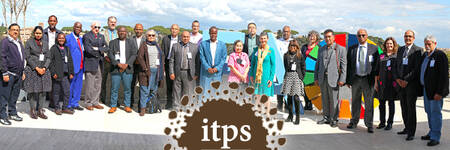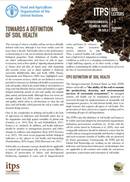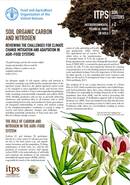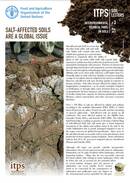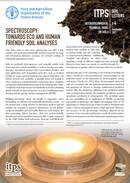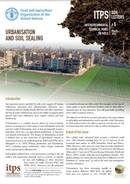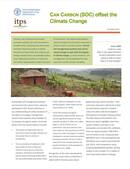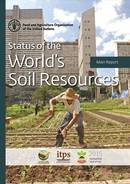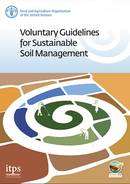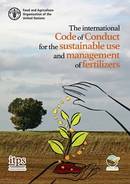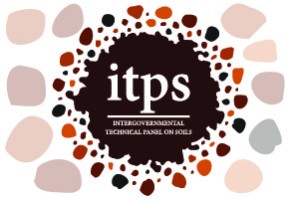
Intergovernmental Technical Panel on Soils
The Intergovernmental Technical Panel on Soils (ITPS) was established at the first Plenary Assembly of the Global Soil Partnership held at FAO Headquarters in 2013.
The ITPS is composed of 27 top soil experts representing all the regions of the world. The main function of the ITPS is to provide scientific and technical advice and guidance on global soil issues to the Global Soil Partnership primarily and to specific requests submitted by global or regional institutions. The ITPS advocates for addressing sustainable soil management in the different sustainable development agendas. Watch the video
For more information contact [email protected]; ITPS Chair Rosa Poch
ITPS Functions and duties
The ITPS have the following functions:
1. Provide scientific and technical advice on global soil issues primarily to the GSP and in relation to specific requests submitted by global or regional institutions.
2. Advocate for the inclusion of sustainable soil management into different development agendas.
3. Review and follow up on the situation and issues related to soils in the contexts of food security, use and management of natural resources, ecosystem services provision, climate change adaptation and mitigation, and other relevant areas.
4. Follow up on the implementation of these Plans of Action with due attention to their impact and contributions to different global policies and initiatives related to sustainable development, MDGs, food security, climate change adaptation and other subject matters.
5. In exceptional cases, when complex technical matters arise, request the Plenary Assembly and the Secretariat to form technical committees aiming to gather specific advice.
The ITPS members have the following duties:
1. Provide scientific and technical advice on global soil issues to the GSP
2. Sign a “non-conflict of interest” declaration
3. Participate at the Plenary Assembly, as stipulated in the ToR of the GSP
4. Appoint a Chairperson by consensus
ITPS Fourth Panel 2022 - 2025
The 4th ITPS Panel will meet for the Introductory session on 15 June 2022. The new board will serve for a three-year mandate (June 2022–June 2025). The new Panel ensures proper regional balance as well as optimal coverage of the range of scientific and practical areas of expertise required by the wider GSP mandate.
Check out the 4th ITPS Panel | Read more (Nomination of the 4th Panel: 10th Plenary presentation)
ITPS Previous panels
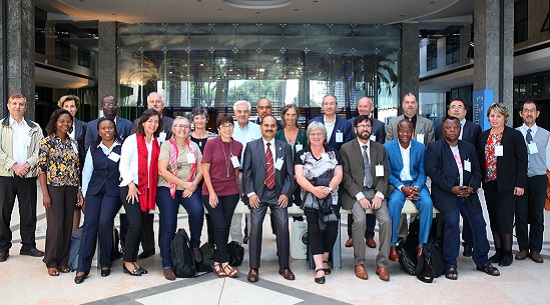
Experts panel 2018-2021
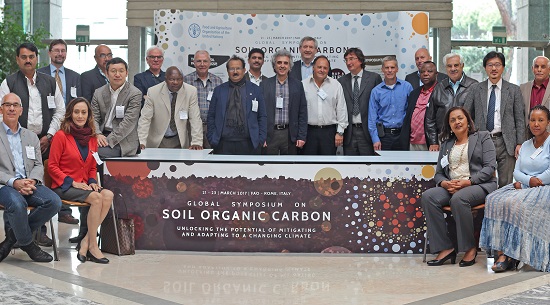
Experts panel 2015-2017
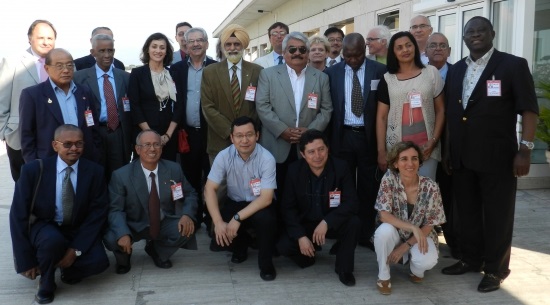
Experts panel 2013-2015
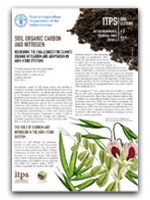 ITPS | Soil letters
ITPS | Soil letters
The series of the ITPS soil letters aim to provide to the general public concise and clear information on one topic linked to the work and activities led by the Intergovernmental Technical Panel on Soils (ITPS). It is planned to publish about 8 letters per year. This series are in line with the Sustainable Development Goals and the FAO’s Strategic Objectives and contributes to the efforts of ending hunger, malnutrition, climate change adaptation, land degradation and overall sustainable development.
Towards a definition of soil health, September 2020, issue #1
The concept of what is a healthy soil has not been officially defined until now, although it has been widely used for more than a decade. Soil health refers to the performance or functioning of a soil, not its intrinsic physical/chemical/ biological properties. Early definitions of healthy soils are rather anthropocentric and focus on soils in agroecosystems... Read more
Soil Organic Carbon and Nitrogen, March 2021, issue #2
An adequate supply of soil organic carbon and nutrients is essential to maintain crop yields and the nutritional values of the agri-food system. However, the global agri-food system needs to be reshaped to meet population needs, and become more productive, more inclusive of poor and marginalized populations while remaining environmentally sustainable and resilient...Read more
Salt-affected soils are a global issue, May 2021, issue #3
Naturally saline or sodic soils host valuable ecosystems, including a range of rare plants, that are adapted to the extreme conditions. However, salt-affected soils may develop quickly in response to human activities. Soils may thus become affected by salinity and sodicity due to inappropriate management or through saline water intrusion from sea, river or groundwater and undergo a rapid decline of health, losing their capacity for biomass production, natural filtration, carbon sequestration and other necessary ecosystem functions....Read more
Spectroscopy: towards eco and human friendly soil analysis, September 2021, issue #4
A study conducted by the FAO Global Soil Laboratory Network (GLOSOLAN) showed that most standard chemical analyses have medium or high risks to human health, can contribute to environmental pollution and are often costly, requiring a range of different equipment and chemicals.....Read more
Urbanisation and soil sealing, March 2022, issue #5
An important service provided by soils is the support of human settlements, structures and infrastructures. However, once urbanised, soils are usually deeply affected, and often experience the loss of many soil functions, such as the ability to support plant growth and water infiltration, store organic carbon and host biodiversity....Read more
How can soils continue to sustain the growing need for food production in the current fertilizer crisis? February 2022, Issue #6
Soils are directly and indirectly involved in the provision of most ecosystem services vital for humans, including food production, which is fundamental for food security and sovereignty. Soils are the basis for producing more than 95 percent of our food, However...Read more
A call to protect the world’s food basket: black soils, June 2023, Issue # 7
Black soils have played a crucial role in global agriculture for many decades, supporting the production of cereals, tuber crops, oilseeds, pastures, and forage systems. Despite covering only 5.6... Read more
Biochar in sustainable soil management: potential and constraints , November 2023, Issue # 8
Biochar, derived from the pyrolysis of organic materials, is a decomposure-resistant soil amendment that enhances fertility, boosts agricultural productivity, and sequesters carbon in the soil for thousands of years... Read more
Symposia implementation

Symposium on Soil Organic Carbon

Global Symposium on Soil Pollution

Global Symposium on Soil Erosion
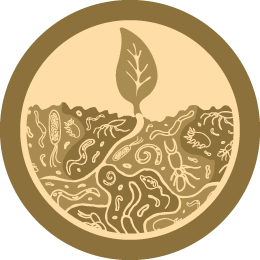
Global Symposium on Soil Biodiversity

Symposium on Salt-affected Soils
📌Click here to discover more about all the Global Symposia held until now
ITPS Working sessions
As the top scientific panelist on soil, ITPS experts meets twice a year, generally at FAO headquarters, to make progress in reversing soil degradation and promoting healthy soils under the framework of the Global Soil Partnership.
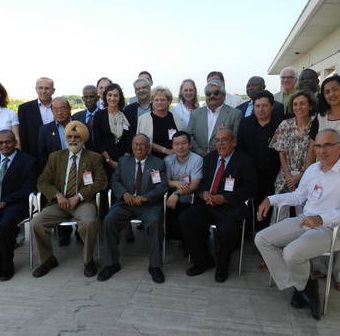
First working session
FAO headquarters, Rome | 22 - 26 July 2013
The main outputs of this session were to review and endorse the draft Plans of Action for Pillars as well as to ensure due reflection of soils in the Sustainable Development Goals (SDGs).
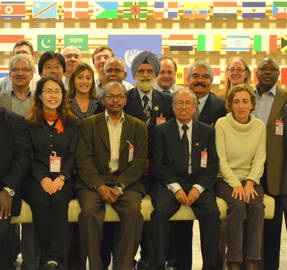
Second working session
FAO headquarters, Rome | 7 - 11 April 2014
The main outputs of this session were the agreement on the way forward for the Status of the World's Soil Resources Report and the endorsement of the revised World Soil Charter.
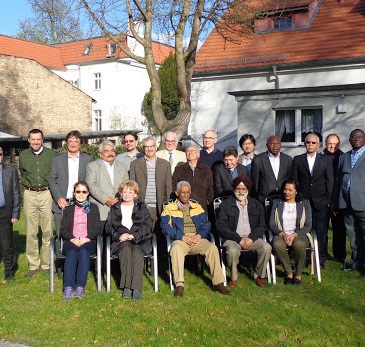
Third working session
Potsdam, Germany | 13 - 17 April 2015
The main outputs of this session were the finalization and endorsement of the Status of World’s Soil Resources Report and the proposal for SDGs indicators where soils play a role.
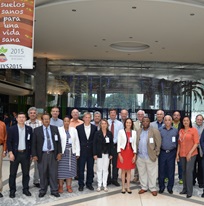
Fourth working session
FAO headquarters, Rome | 14 - 18 September 2015
The main outputs of this session were the establishment of working groups to execute implementation plans and the production of a paper on soils/climate change/food security.
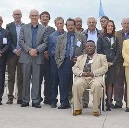
Fifth working session
FAO headquarters, Rome | 14 - 18 March 2016
The main outputs of this session were the finalization of the first draft of the Voluntary Guidelines for Sustainable Soil Management and the review of the ITPS work plan.
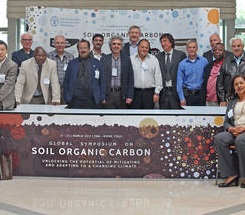
Sixth working session
FAO headquarters, Rome | 20 - 24 March 2017
The main outputs of this session were the follow up on the plan for the preparation of the Status of World's Soil Resources Report 2020 and the GSP regional Implementation Plans.
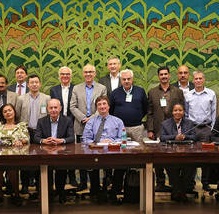
Seventh working session
FAO headquarters, Rome | 30 October - 2 November 2017
The main outputs of this session were the clearance of the GSOCmap, the Global Assessment of the impact of plant protection products, and the establishment of a working group on SOC.
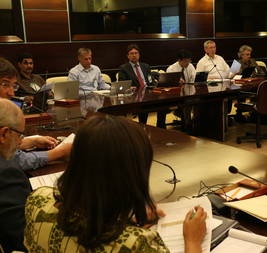
Eighth working session
FAO headquarters, Rome | 1 - 5 May 2018
The main outputs of this session were the the follow up on the GSP Plans of Action, the symposium preparation, and the implementation of the Voluntary Guidelines for Sustainable Soil Management.
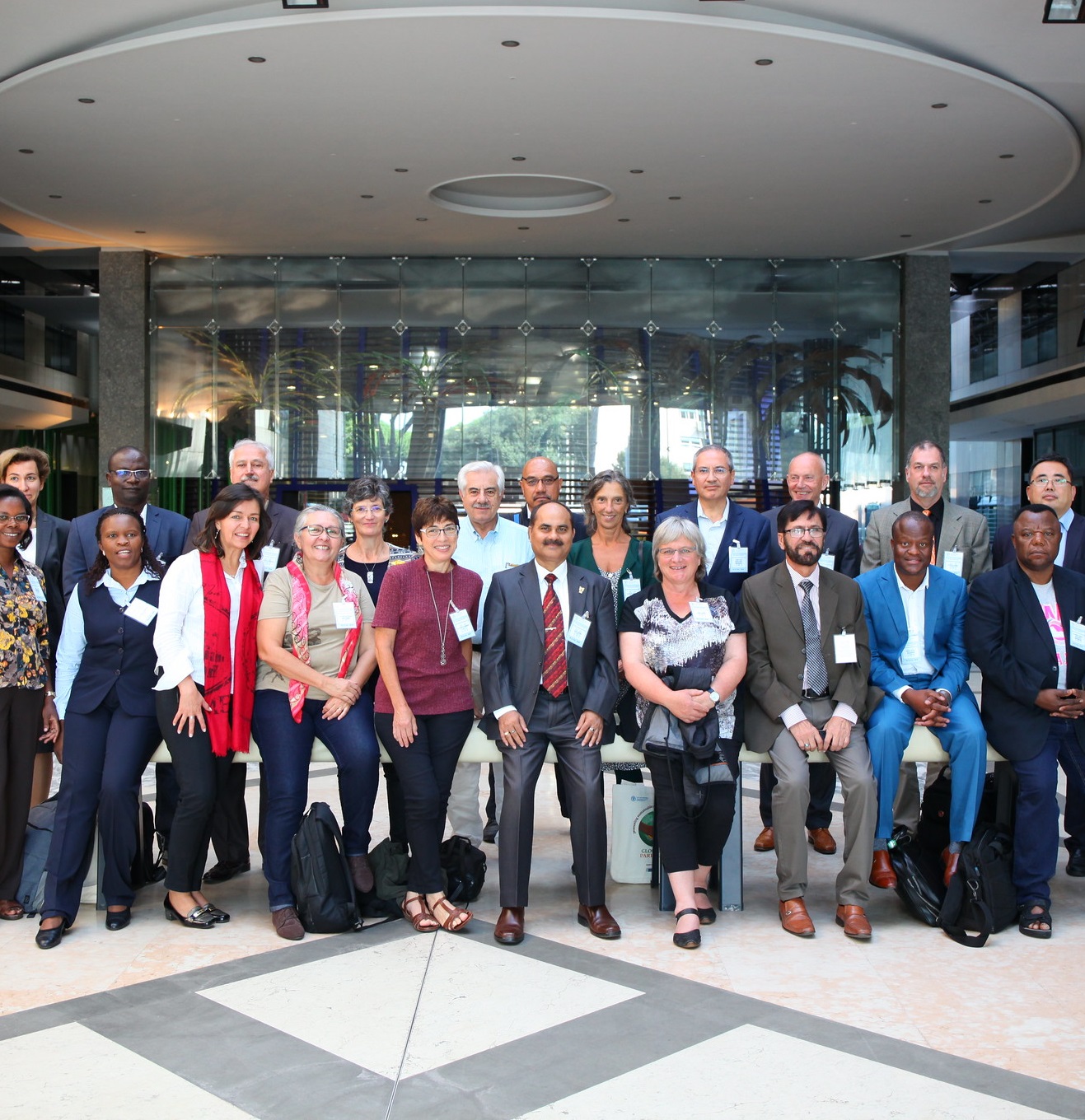
Ninth working session
FAO headquarters, Rome | 10 - 12 October 2018
The main outputs of this session were the development of a study on the economic benefits of sustainable soil management for farmers and the implementation of GLOSOLAN.
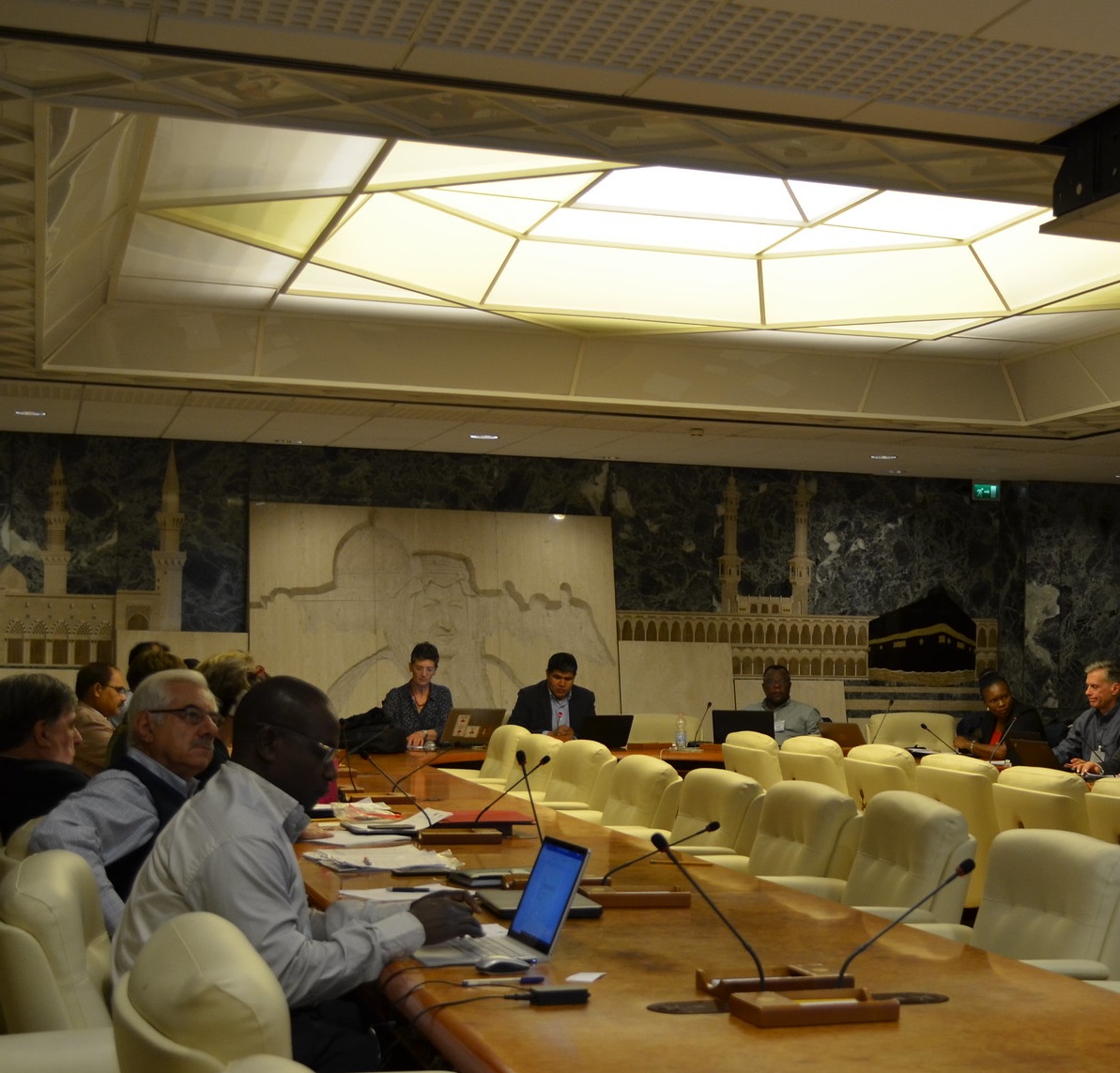
Tenth working session
FAO headquarters, Rome | 13 - 17 May 2019
The main outputs of this session were the progresses on the Fertilizer Code and the finalization of the technical specifications for mapping soil salinity and SOC sequestration potential.
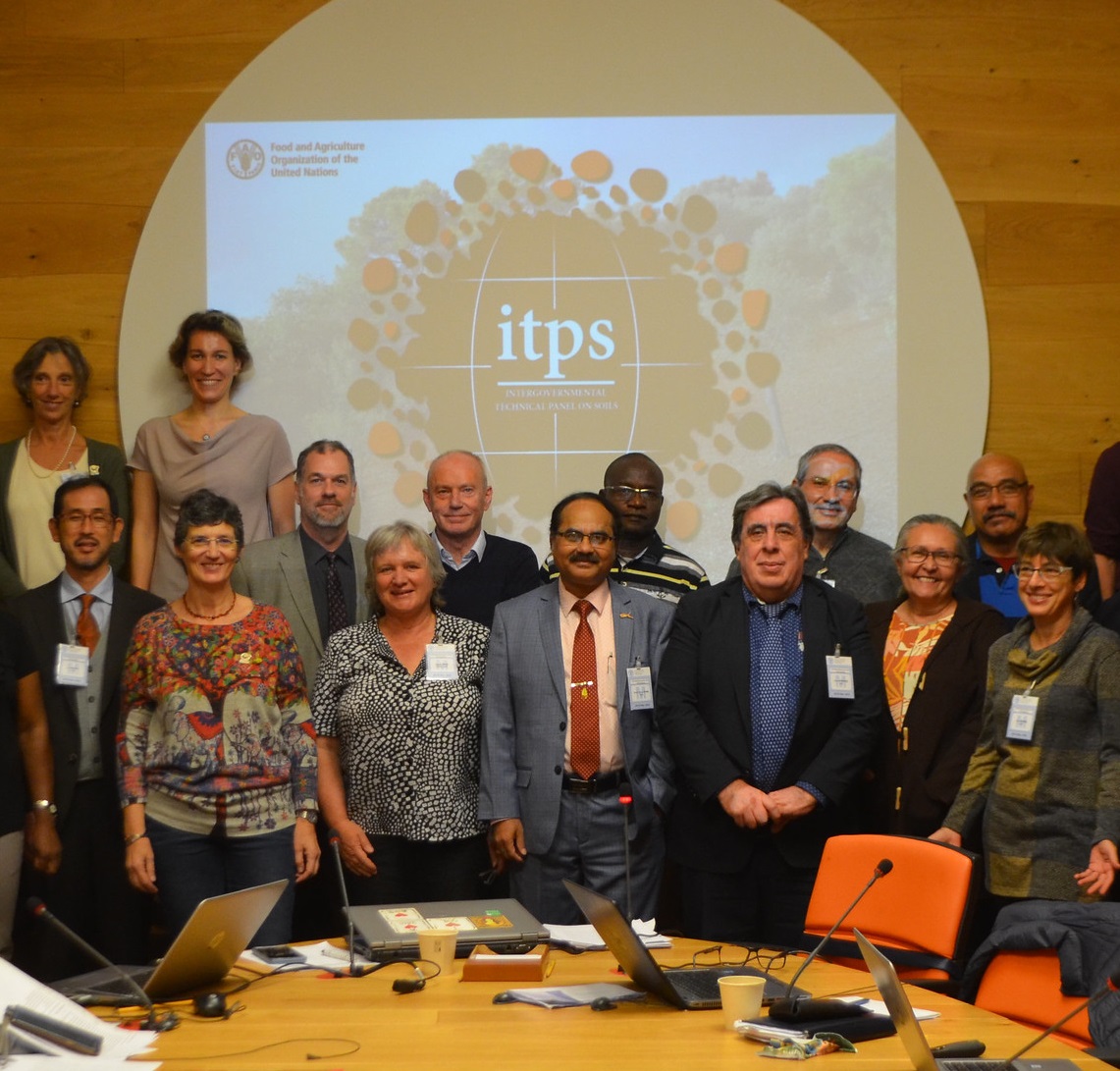
Eleventh working session
FAO headquarters, Rome | 20 - 22 November 2019
The main outputs of this session were the discussion on the Protocol for assessing Sustainable Soil Management and on the draft Guidelines for MRV on SOC stocks and changes.
Twelfth working session
FAO headquarters, Rome | 26 - 27 May 2020
The main outputs of this session were the evaluation of the progresses made by the different working groups on salinity, biodiversity, black soils, pollution, SOC and mapping.
![]()
Thirteenth working session
FAO headquarters, Rome | 16 - 18 November 2020
The ITPS thirteenth working session was held virtually on 16-18 November from 12:00 to 14:00 pm (CEST). The meeting was open to ITPS members only.
![]()
Fourtheenth working session
FAO headquarters, Rome | 11-13 May 2021
The ITPS fourtheenth working session was held virtually on 11-13 May from from 13:30 to 15:30 (CEST). The meeting was open to ITPS members only.
![]()
Fifteenth working session
FAO headquarters, Rome | 15 - 17 November 2021
The ITPS fifteenth working session was held virtually on 15-17 November 2021 from from 13:00 to 15:00 (CEST). The meeting was open to ITPS members only.
![]()
Sixteenth working session
FAO headquarters, Rome | 28 - 30 March 2022
The ITPS sixteenth working session was held virtually (Zoom platform) on 28 - 30 March 2022 from 12:00 to 14:00 (CET). This meeting was open to ITPS members only.
![]()
Seventeenth working session
FAO headquarters, Rome | 17-19 October 2022
The ITPS seventeenth working session was held in October 2022 from 12 to 14 CEST. This meeting was open to ITPS members only.
![]()
Eighteenth working session
FAO headquarters, Rome | 21-23 March 2023
The ITPS will held its eighteenth working session in March 2023 at FAO headquarters. This meeting will be open to ITPS members only.
![]()
Ninteenth working session
virtual | 13-15 November 2023
The ITPS ninth working session was held in November 2023 from 12 to 14:30 CEST. This meeting was open to ITPS members only.
![]()
Twentieth working session
FAO headquarters, Rome | 19-21 March 2024
TheThe ITPS will held its twentieth working session in March 2024 at FAO headquarters. This meeting it's open to ITPS members only.
Related publications
ITPS Soil letter | Issue #1
Towards a definition of soil health
ITPS Soil letter | Issue #2
Soil organic carbon and nitrogen
ITPS Soil letter | Issue #3
Salt-affected soils are a global issue
ITPS Soil letter | Issue #4
Spectroscopy: Towards eco and human friendly soil analysis
ITPS Soil letter | Issue #5
Urbanisation and soil sealing

